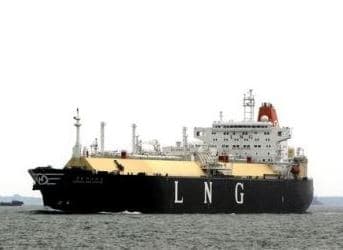The recent decision by a French energy company to sign a deal to send liquefied natural gas from the United States to a utility company in Japan shows that, despite the rhetoric on Capitol Hill, the energy market is driven by commercial interests, not political winds.
GDF Suez, a member of the U.S.-based consortium leading the development of the Cameron LNG facility in Louisiana, signed the deal with Japanese utility company Tohoku Electric Power to supply 270,000 tons of liquefied natural gas (LNG) starting in 2018.
"This sales agreement seals our first long term LNG sale with a Japanese partner, as well as the emergence of U.S. LNG contributing to Japan energy supply, thanks to the benefit of the shale gas revolution in America," said Jean-Marie Dauger, executive vice president of the French company's LNG business.
The Cameron LNG facility received conditional authority in February from the U.S. Department of Energy to send domestic natural gas to countries that don't have a free trade agreement with the United States.
As domestic production of natural gas has increased, U.S. imports have declined. The U.S. Energy Information Administration (EIA) said in its latest monthly market report that it expects marketed gas production to grow by an average of 3 percent this year. By 2018, EIA expects the United States will be a net exporter of natural gas.
Of the planned LNG terminals in the United States, Cheniere Energy's Sabine Pass terminal is the only one to have the full export license for sales to European countries. Demand, meanwhile, is increasing from the expanding economies in Asia. Japan, in particular, is taking on more natural gas because its nuclear power sector was crippled by the Fukushima nuclear disaster in 2011. With few natural resources of its own, Japan is the largest LNG consumer in the world.
All this makes statements from U.S. policymakers about how American gas exports could be used to check Russian influence in Eastern Europe sound a little like lip service.
Related Article: Europe’s Case Against Gazprom Will Damage Russian Influence
Rep. Fred Upton (R-MI), the chairman of the House Energy and Commerce Committee, said March 3 that expanding U.S. LNG exports would send a strong message to Russia. "We will continue to advance legislation and develop new proposals that allow market forces and technology to help expand Eastern Europe's access to affordable energy beyond Russia," he said.
Upton, his Republican counterpart from Oregon, Cory Gardner, and several of their colleagues on the right all say U.S.-sourced LNG can take away Russia’s leverage in energy dependent Eastern Europe, through which pipelines also carry gas to European customers.
But Cheniere's boss, Jean Abiteboul, told Bloomberg News that LNG can't push Russia out of the European energy sector, especially LNG from the United States.
"It will probably force people to think more accurately on the diversification of supply [and] security of supply," he said.
EIA shows that natural gas consumption in Europe has been in a general decline since 2008. Though it may be politically necessary to show solidarity with the European community as the Ukrainian crisis drags on, the market for U.S. LNG in Europe isn't as ripe as some lawmakers suggest it is.
It's the Asian economies that are thirsty for gas. Even Putin, the very adversary the U.S wants to contain, is looking East for new markets.
For now at least, U.S. LNG exports are going to where customers, not politicians, want them.
By Daniel J. Graeber of Oilprice.com


















